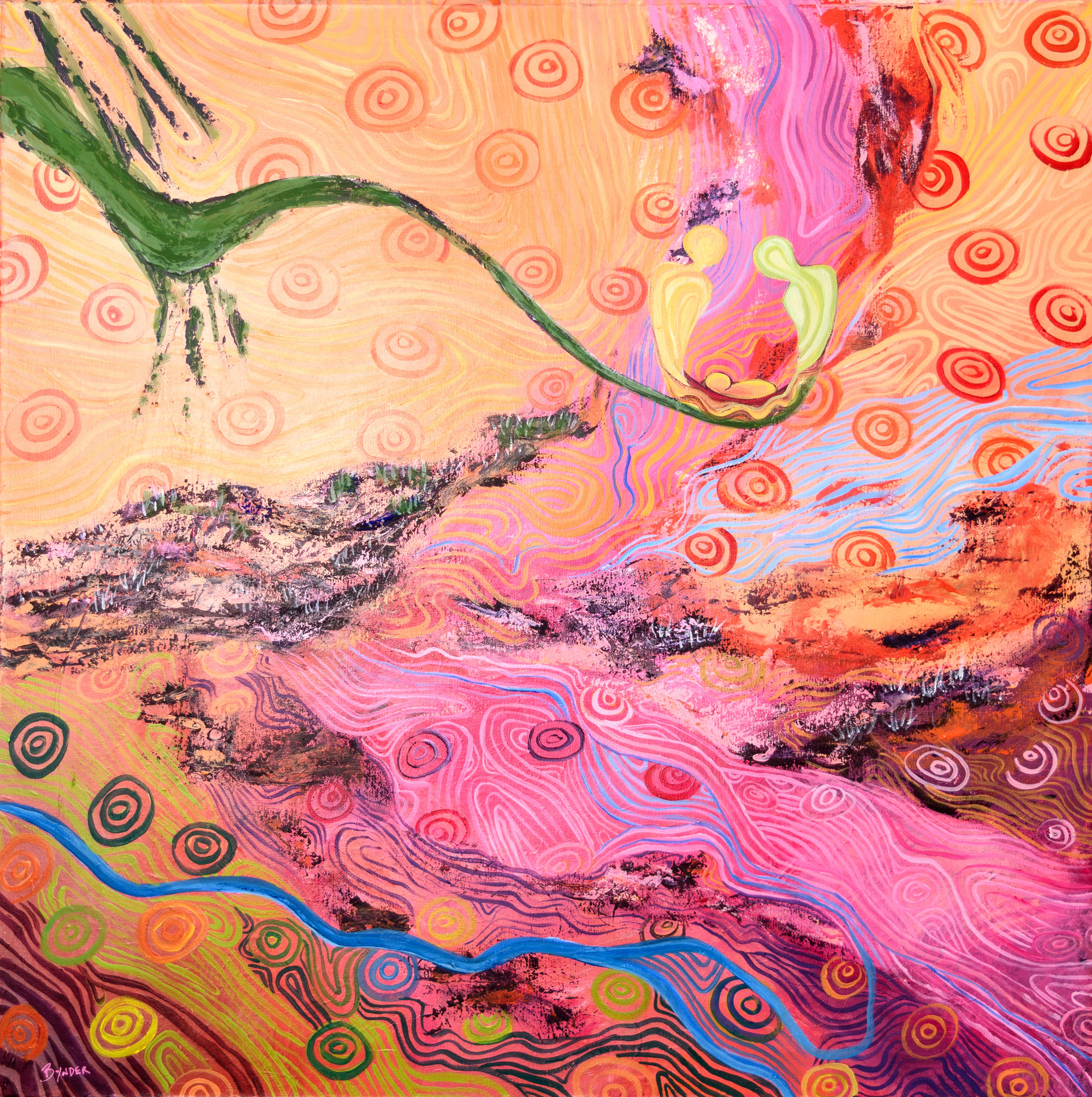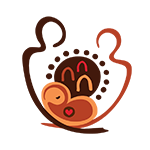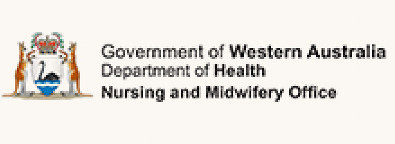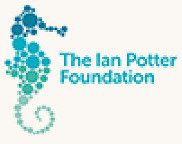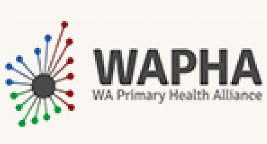Mums
As a new Mum, you are forming a special bond with bub as she/he grows in your belly. Your health and wellbeing are linked with your baby’s health and wellbeing.
Together you and bub can grow strong.
Play the Baby Coming You Ready? theme song written by Jillian Moody and sung by Jillian and Dave Pigram.
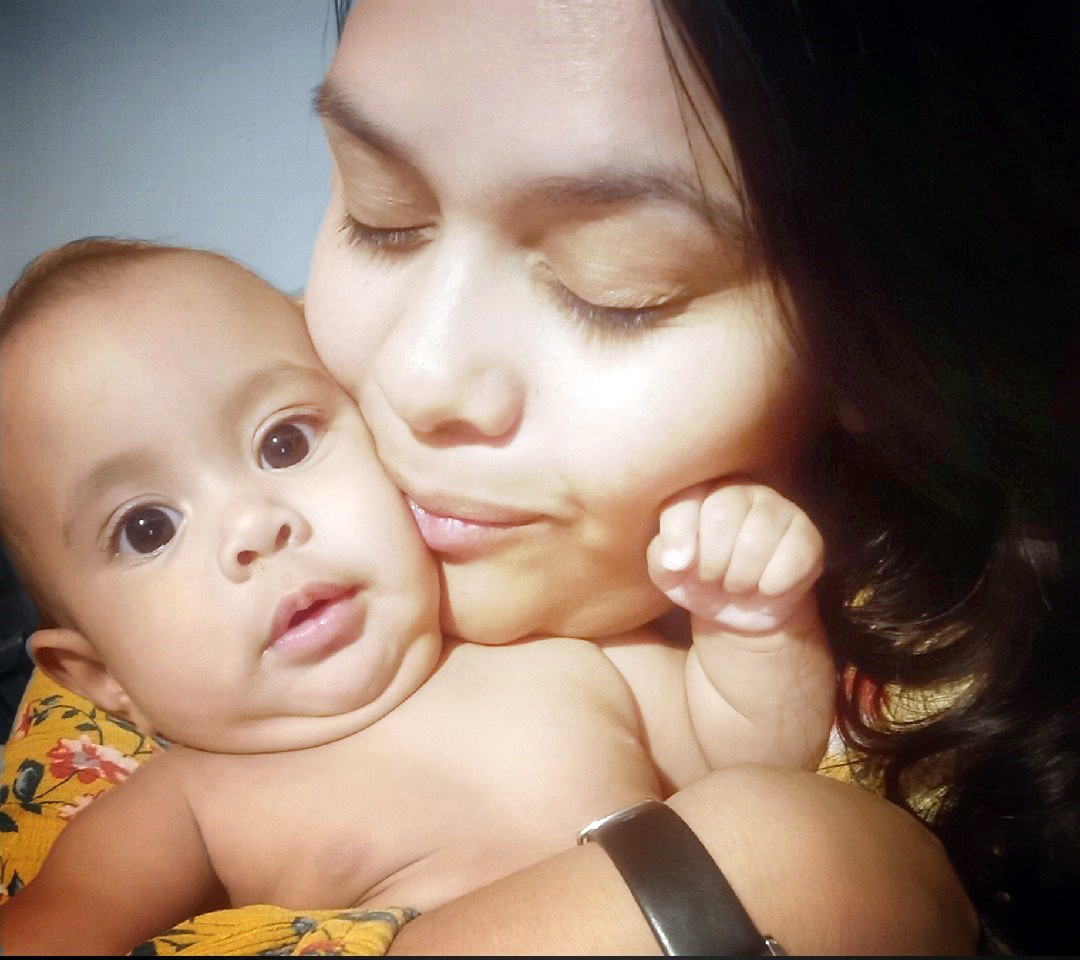
-
Growing Strong Together

For Aboriginal and Torres Strait Islander families, there are many cultural, spiritual, social and historical factors that influence how we grow up our little ones. The inter-relationship between mothers, baby, fathers and family are vital and build strong and trusting families and communities.
Baby’s first 1000 days (from conception until bub is 2 years old) is the time when we form our strongest bond with baby.
It is the time when the building blocks for baby’s life are being made. It is the time when foundations for a strong mind, a strong body, good wellbeing and a spiritual connection to Culture is being made. -
Birthing Our Way
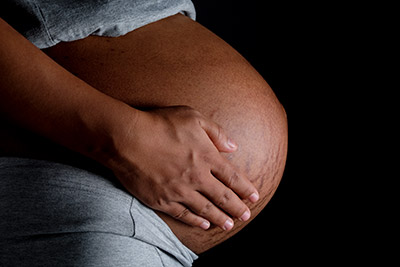
For thousands of years, mothers and traditional midwives have passed down knowledge about pregnancy and birth. For many of us the passing on of this traditional knowledge has been disrupted.
These days your say is vital. Your strong voice can make choices about what you want and need.
Remember, this is your pregnancy, your body, your birth and your baby.
These days we rely on our own mothers, nanas, aunties, midwives and doctors to help us through this time.
Many of us want our partner’s or husband’s support at this time too.
Aboriginal and Torres Strait Islander women are strong mothers!
-
Pregnancy
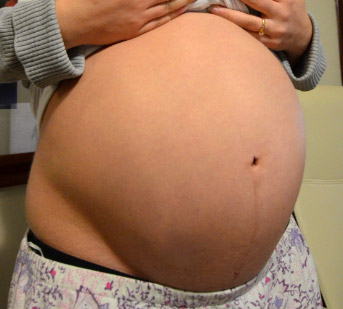
Knowing what lies ahead
The more you know about what is happening, the more freedom you have to make choices. You may hear many new ‘medical’ words about pregnancy, birth and what happens just after bub is born. This can be confusing, but knowing the important medical terms might help you.
Remember, if you are unsure about anything – ask questions, or take a support person to help you ask questions. This is your pregnancy journey.
We want you to feel as supported and prepared as possible!Here are some things that describe what you might notice in your body or hear your midwife or doctor talk to you about.
During pregnancy, your body needs more blood for baby. Pregnancy increases the amount of blood by 30-50%, so we need lots of folate and iron in our diet to make extra blood cells for baby.
If we don’t get enough iron and folate in our diet, pregnant mums can easily get anaemia.
It’s good to eat iron-rich food in pregnancy to prevent this.
Anaemia is not enough red blood cells. Anaemia makes you tired, dizzy, and can sometimes make it hard to think and catch your breath. It can also cause problems with too much bleeding or haemorrhage at birth.
Folate is a ‘B group vitamin’. We need this especially for development of baby when you are pregnant. Eating lots of extra folate-rich foods especially in the first weeks of pregnancy, when baby’s brain and spinal cord are forming, helps grow healthy bub.
Folate helps to stop birth defects to the spinal cord such as spina bifida. Folate is in food, like green leafy vegetables, and is added to food, like bread and breakfast cereals. It is hard to eat enough of this during pregnancy so it has been made into a supplement vitamin pill for pregnant Mums.
For more information go to: https://www.pregnancybirthbaby.org.au/indigenous-families
Routine Antenatal Tests
During your pregnancy, you’ll be offered lots of tests to help make sure you and bub are growing well and strong together. You don’t have to have the tests. However, it’s good to know what they are so you can make a strong choice that’s right for you. You can talk to your midwife or doctor about them too.
Weight and Height
You will be weighed at your first appointment . Women who are overweight for their height can have more problems during pregnancy.
Urine
You will probably be asked to do a wee (urine) sample at each antenatal appointment .
Blood pressure
Your blood pressure will be taken at every antenatal visit. A rise in blood pressure can cause problems for baby, especially later in pregnancy.
Routine blood tests
Routine blood tests that will be offered to you at your first or second visit include: your blood group , Rhesus (RhD) factor, iron levels, infections and for gestational diabetes
Extra blood test
At about 14 – 18 weeks in your pregnancy, you might be offered another blood test. This is called the maternal serum screen or ‘triple test’. This test does not diagnose anything. It only checks to see if there is a ‘higher risk’ of bub having Down’s Syndrome . If a ‘risk’ is found, you will be offered further testing.
Cervical Screening Test
The Cervical Screening Test has replaced the two-yearly Pap test. It is more accurate than Pap tests in finding the virus (HPV) that can sometimes lead to cervical cancer.
Group B streptococcus (GBS)
Lots of people have this bacteria and it causes no problems. In a small number of pregnant women who already have GBS, it can infect the baby just before or during labour and can lead to baby getting very sick. You will be offered a vaginal swab at about 36 weeks to test for this. This test is a simple swab you can do yourself at your appointment.
Ultrasound scans
During your pregnancy, you will be offered a number of ultrasound scans.
Dating Scan
This is done at 6-10 weeks. It is the first scan of your pregnancy and will give you a ‘due date’ and see if you have a single or multiple pregnancy.
First Trimester Scan
At 10 – 12 weeks you might be offered another scan.
This scan measures the skin folds on the back of baby’s neck. It can tell us if there is a risk of a chromosomal abnormality like Down’s Syndrome. It is usually done with a blood test.
Morphology Scan
At 18-22 weeks you will be offered this scan. It takes a really good look at the baby’s body and major organs like the heart, to make sure they are normal.
It looks at the placenta, the umbilical cord, the fluid around baby and your cervix.
Other Scans
Sometimes you will need some extra scans throughout your pregnancy if there are any worries like baby is too small or too big or you are having more than one baby.
Pregnancy Vaccinations for Mum
Pertussis
Pertussis is also known as Whooping Cough. This needle is offered to you between 28-32 weeks of your pregnancy. This gives your baby protection from this disease when they are born.
Influenza
The flu needle is offered in pregnancy and can minimise the chance of you getting it and your baby getting the flu when they are born and up to 6 months. It is a good idea to ask your family and friends if they are up to date with their needles.
Don’t feel shame to ask questions.
Remember that it’s your right to: say ‘no’ to any tests or treatment for you OR your baby if you don’t want to do them.
-
Birth
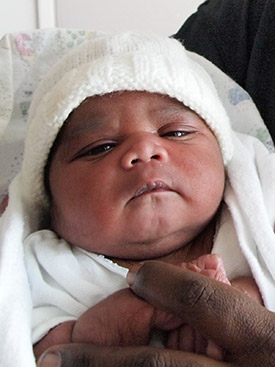
Preparing for birth
Birthing is the most natural and amazing experience for both Mum and bub. Your body will know just what to do. It is really important that you feel completely safe and supported at this time. So make sure you have your support person or people with you and anything else you might want or feel you need. It’s a good idea to have a small bag packed with things you want to take into hospital when you birth.
When baby is born
For bub to feel warm, safe, and secure after such a big journey, the most important thing for bub is to feel your warm skin immediately after birth. Unless baby needs a little bit of help at birth, it is really important that you and bub have skin-to-skin on your chest for an hour, without interruption. This helps baby keep warm, helps start breastfeeding and helps bub feel safe and know you are still there.
The Placenta or ‘After Birth’
When you are pregnant, the placenta is inside your womb. The placenta takes everything you eat, drink and breathe in to feed baby inside your belly. This ‘food and oxygen’ for baby passes from the placenta through the umbilical cord to baby. As baby grows, the placenta also grows.
Straight after you birth your baby, you will continue to have mild contractions. This helps to “birth” the placenta from inside your womb. This is why it is sometimes called ‘after birth’. It is the final stage of birth.
Your midwife will offer you a medication called oxytocin to help reduce bleeding. She might also massage your lower belly and you might still have to ‘push’ to make sure all the placenta comes out. This also helps reduce bleeding.The placenta has different cultural significance for women world wide. It may have some meaning for you and your family. Some women want to take the placenta home to bury it on Country, or they may have other significant cultural practices. Remember it is your choice. Your midwife is there to understand and support you.
Vaccinations and Screening for Bub
The midwife will ask you if you want your baby to have some vaccinations and a screening test (heel-prick test).
These are all your choice.
Bub’s ‘heel prick’ screen
You will be asked if you want your bub to be screened for a number of rare disorders . This test is called the ‘newborn screening’ or ‘heel-prick’ test. Most babies do not have any of these disorders. But for the small number that do, early treatment can improve their health and prevent severe disability or even death.
Vitamin K
An injection of vitamin K is offered because babies have very little vitamin K in their bodies at birth. Very low levels of vitamin K can cause some babies to have severe bleeding – sometimes into the brain, causing brain damage. This bleeding is called ‘hemorrhagic disease of the newborn’. One injection of vitamin K at birth can prevent this.
Hepatitis B
Children with Hepatitis B are more likely to develop liver disease or cancer later in life. This can easily be transferred by a person who doesn’t know that they have Hepatitis B or they are carriers of the virus. It is spread through the blood or body fluids of the infected person through the broken skin or mucous membranes to another person.
If newborn babies are immunised (within 24 hours of birth) and given another vaccination at 2 months, 4 months and 6 months, this protects them from Hepatitis B for life.
Bub’s First Bath
When bub is inside your womb, she/he is covered with a waxy cream called vernix. This protects bub’s pure skin from getting dry from all the fluid inside the womb, and later from the air after bub is born. You might see some of this protective cream after bub is born.
It’s a good idea not to wash this off baby for about 24 hours to protect bubs sensitive skin while it adjusts to the air.
Prematurity and Being Separated from Your Baby
When Baby Comes Too Early?
Pregnancy usually lasts for about 40 weeks. Preterm birth, also known as premature birth, is when bub is born at less than 37 weeks. These babies are known as preemies or premies. Premmies often have immature lungs, find it hard to keep warm, feed poorly and gain weight slowly, at least until they grow more. This can be a worrying time as bub is often taken to the special-care nursery and placed in a ‘humidicrib’ while bub’s finishes developing.
It is really important for you to spend whatever time you can with bub at this time.
-
Bringing Bub Home
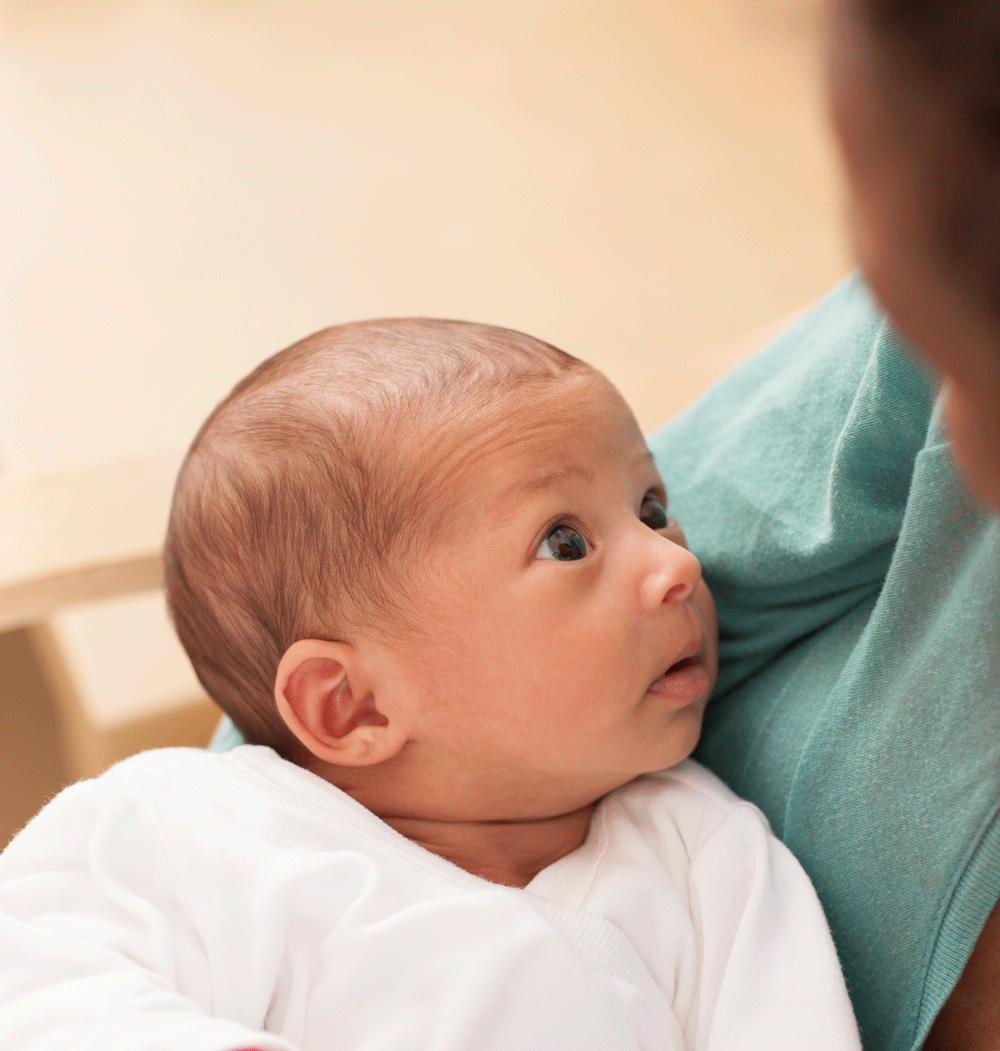
At about 5-10 weeks old, many babies cry for no reason that we understand. This is often worse in the late afternoon and early evening. It can sometimes feel like no amount of rocking, feeding or soothing calms them down. This can last for an hour or more and can be very distressing. Some people think this is colic.
Some suggestions to get baby to:
- Take baby for a walk in the pram or a drive in the car.
- Slings or baby wraps in the early months can also help calm baby by keeping them close to you so they can feel your warmth and hear your heart beat.
- Ask someone who understands to sit with baby while you have some time alone.
- If you are alone, and feeling stressed out by the crying, make sure baby is safe and take a five minute break. It won’t hurt to let bub cry for a few minutes, and it could help you cope better.
The good news is that it stops around 3 to 4 months old, if baby keeps on crying please consult with your GP midwife or child health nurse.
Newborn Feeding
Because bub’s stomach is so tiny, feeds need to be frequent and in small amounts. It’s good to let bub ‘demand feed’. This might mean feeding bub every 2 to 3 hours for the first few weeks to make sure your milk supply is well established.
All babies have different appetites. Some want to feed every two to three hours, and others will be hungry more often. This is normal.
Watch out for signs of hunger in bub.
Signs that bub is hungry:
- moving head from side to side
- opening mouth
- sticking out tongue
- placing hand and fist to mouth
- puckering lips
- nuzzling into the breast
Remember, crying is often a late sign of hunger.
Signs of hunger
While some babies tell you they are hungry with strong cries.
Others give you a less direct message by sucking their hands.
Others turn their head to one side looking for the breast while puckering their lips.
Colostrum
Your breastmilk starts out as “ colostrum ”. This is your body’s ‘first milk’. It is full of goodness for baby and is all baby needs until your milk supply ‘comes in’. You milk usually comes in when baby is a few days old. Offer your baby the breast regularly in these first few days to make sure baby gets all that goodness from the colostrum and to stimulate your milk supply.
Breastfeeding
Mums make choices that suite them. Most Mums choose to breastfeed. Breastfeeding is easy to prepare, always on hand, free and the very best food to start for bub.
Bottle Feeding
But for lots of reasons, some Mums choose to bottle feed.
If you are not breastfeeding, you might express breastmilk or use formula. If you choose to feed bub with formula, it’s good to know how much to give and how to clean and sterilise your baby’s bottles. Check out this link for more information on bottle feeding safely
https://www.pregnancybirthbaby.org.au/formula-feeding
Family Focused Feeding
Our families are a great source of information and knowledge that will help us on our breastfeeding journey. Learning from our mothers, grandmothers, aunties, cousins and sisters can help give us the confidence to breastfeed successfully. And you can always ask a trusted midwife.
Sleeping and settling baby
Giving birth takes lots of energy for you and baby. Both you and bub will need lots of sleep after. Sleeping while bub sleeps is a good idea. Each bub likes to sleep differently. Some like to feel secure sleeping by being firmly wrapped. Others sleep easily either way.
For safe sleeping, it’s also a good idea to sleep bub in a separate cot, basket or pepi pod very close to you, so bub knows you are there. Crying is one way that a baby tells you something is not right. You will get to know why bub is crying and what the different cries mean.
The period of uncontrolled crying
At about 5-10 weeks old, many babies cry for no reason that we understand. This is often worse in the late afternoon and early evening. It can sometimes feel like no amount of rocking, feeding or soothing calms them down. This can last for an hour or more and can be very distressing. Some people think this is colic.
During this time, keep calm and remind yourself and others that these periods of crying will pass. If you have trouble sleeping, reach out for help from others who may be able to help.
Some tips:
- take baby for a walk in the pram or a drive in the car
- ask someone who understands to sit with baby while
- If you are alone, and feeling stressed out by the crying, make sure baby is safe and take a five minute break. It won’t hurt to let bub cry for a few minutes, and it could help you cope better.
The good news is that it stops around 3 to 4 months old.
-
Raising Strong Kids in a Strong Community
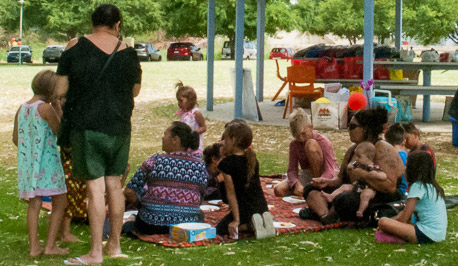
As a Mum, you are a point of love, safety and security. As bub grows, there will be many changes, joys and challenges that you share. You are a role model for young people. While it can be hard at first, parenting is about setting clear limits and being strong for your kids. Setting boundaries helps kids to feel safe and supported. It builds trust and respect.
Learning how to recognise when children are upset, sad or angry can help you to support them when they are going through difficult times. This helps build self-esteem.
Sometimes Mums don’t know how to manage difficult times, but try your best. Don’t feel shame to ask someone you trust for support. We are all learning and growing together to grow strong kids, strong families and strong community.
For more information on growing strong Aboriginal and Torres Strait Islander families go to the ‘Pregnancy Birth for Indigenous Families’ website:
https://www.pregnancybirthbaby.org.au/helping-your-baby-grow-from-0-to-5-years -
Trauma and Grief
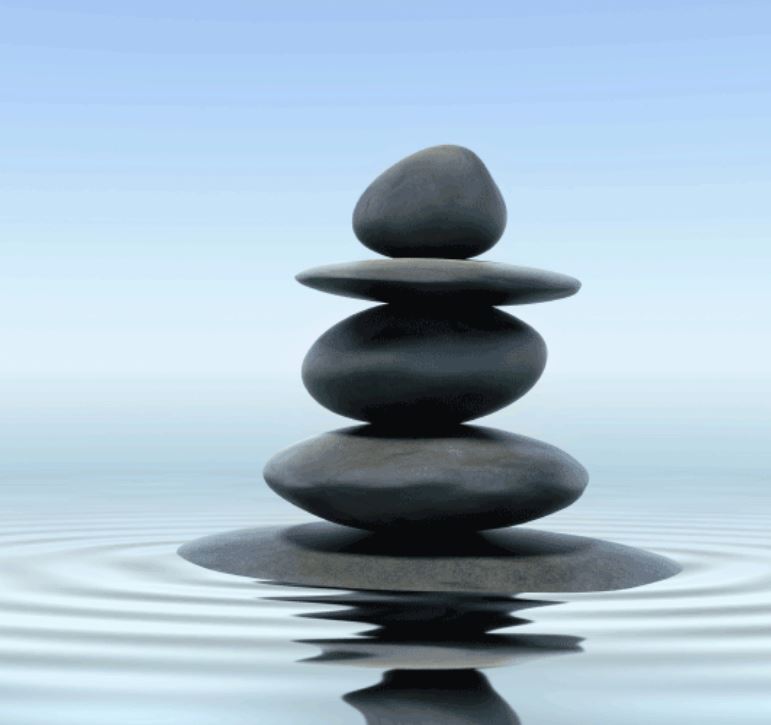
Miscarriage and still birth
If at any time your pregnancy has difficulties or if you lose a bubba, this can be very upsetting. Not every baby makes it from your belly to birth safely.
Remember grief is normal. Each person takes a different amount of time to recover from losing a baby. Lots of women could feel guilty, angry, confused, anxious, numb or exhausted. There is no right or wrong way to cope with grief. Trust your own body and your loved ones to know what is right for you and your partner during a difficult loss.
Remember to seek help from a loved one or from your midwife, doctor or a counsellor if you need support.
Talk to someone.
National Support line
You can talk to a woman on the phone at SANDS 24 hours a day 7 days a week on this number:
1300 072 637http://cope.org.au/pregnancy/pregnancy-loss/
https://www.sands.org.au/find-support
https://www.pregnancybirthbaby.org.au/emotional-support-after-miscarriage
https://www.babycenter.com.au/a4006/coping-with-a-miscarriage#ixzz5WJ1lmcSv
Difficult births
Some women experience a difficult or traumatic birth. They might have a birth that was not what they expected or planned. This can be upsetting. It can also create fear that every birth will be the same. These feelings can affect breastfeeding, bonding, parenting and even other relationships. If you have upset feelings over a difficult birth experience, it is really important that you find out why your birth was difficult and why it happened the way it did. Talk to your midwife or doctor. Go through your birth notes step by step with them. This will help you understand what happened. It will help you get answers to your questions and it will help you to heal.
Family Violence
Family violence is not part of Aboriginal culture. It is never ok.
Family violence is complicated. It isn’t just physical and it can happen to anyone at any time.
Everyone has the right to feel safe and live without fear in their own home. It can be really hard if you and your children are experiencing family or domestic violence. There are lots of issues and reasons involved, this can make it hard to leave if you and your children feel unsafe. It is important you know that you are not alone and that there are people and organisations that understand. They can help you. Your midwife can provide confidential help when you need it.
If you or someone you know is in need of help, call the Domestic Violence Crisis Line on 1800 800 098
If you want to talk to someone confidentially about concerns in your relationship, you can call 1800RESPECT on 1800 737 732.
Western Australia
https://www.wlswa.org.au/what-we-do/djinda-service/
https://www.relationshipswa.org.au/Services/Aboriginal-Community-Support/Djinda-Service
https://www.dvrcv.org.au/talk-someone/services-other-states/wa
https://www.dcp.wa.gov.au/CrisisAndEmergency/FDV/Documents/KimberleyReferralGuide2017.pdf
https://www.dcp.wa.gov.au/CrisisAndEmergency/FDV/Documents/Referral%20Guide%20June%202016.pdf
Victoria
https://www.dvrcv.org.au/djirra
https://www.wrisc.org.au/aboriginal-family-violence-program.php
- Yarning SafeNStrong (24/7 crisis helpline for people who need to speak with someone about their wellbeing) on 1800 959 563
- Djirra (counselling support for those experiencing family violence) during business hours on 1800 105 303
- Dardi Munwurro’s Brother to Brother (24/7 Aboriginal Men’s Referral Crisis Line) on 1800 435 799
South Australia
https://www.dvrcv.org.au/talk-someone/services-other-states/sa#1881
Past Trauma and Intergenerational Trauma
Unresolved traumas of the past still affect us now. Intergenerational trauma and childhood trauma or tough times leave scars. If we don’t heal that hurt it can hang around.
Many of us have trauma that will impact our newborn or family. This trauma may not even be our own, but carried down from our parents. We may be worried about how these scars will show up for our family.Suggestions to accessing help to heal:
Contact a counsellors, psychologist. Here are some suggestions:
http://healingfoundation.org.au/stolen-generations/support/
http://healingfoundation.org.au/stolen-generations/stolen-generation-projects/Watch some of our own people tell their powerful stories
“Telling Our Stories- Our Stolen Generation”
http://healingfoundation.org.au/videos/Lived experiences from young people from the Launch of LOVE and HOPE Suicide Prevention Campaign on the Culture is Life website.
https://twitter.com/cultureislifeand again: #cultureislife launches Something One My Mind featuring @glennskuthorpe, Jedda Costa, Louis Mock and Alice Skye. With culture as a foundation, we won’t walk alone. #itstimeforchange
13Yarn phone
139276
This telephone support is available for you, 24 hours a day, 7 days a week. An Aboriginal or Torres Strait Islander support person is there to listen and support you. This is your story, your journey and they will take the time to listen, no judgement, no shame, they are there for YOU!
Lifeline phone
13 11 14Worried about unhealthy, abusive or violent behaviour in any of your relationships?
You can talk to someone who understands 24 hours a day, 7 days a week on:
1800 RESPECT on 1800 737 732 or chat online
https://www.1800respect.org.au/healthy-relationships/
Women’s Domestic Violence Helpline on 1800 015 188
